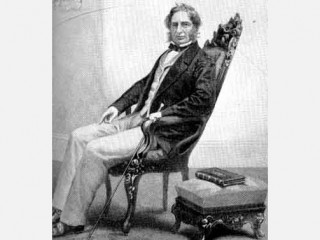
Benjamin Lundy biography
Date of birth : 1789-01-04
Date of death : 1839-08-22
Birthplace : New Jersey, U.S.
Nationality : American
Category : Famous Figures
Last modified : 2011-01-06
Credited as : Abolotionist, ,
Benjamin Lundy nurtured the antislavery movement in the United States during the 1820s through his newspaper, the Genius of Universal Emancipation.
Benjamin Lundy was born into a New Jersey Quaker family on Jan. 4, 1789. Although he had little formal education, he acquired the traits of activism and concern for oppressed people. At the age of 19 he moved to Wheeling, Va., where he learned saddle-making and first saw slaves being marched southward. In St. Clairsville, Ohio, he married Esther Lewis. In 1815 he founded the Union Humane Society, devoted to using legal and political means to free slaves and to assist free blacks. When an antislavery newspaper was started in a nearby town in 1817, Lundy found that he could write effectively. Henceforth, antislavery journalism became his primary interest.
Witnessing slavery firsthand in Missouri in 1819, Lundy realized that economic and political pressures, not just moral attack, would be needed to eliminate slavery. In 1821, back in Ohio, he founded his own newspaper, the Genius of Universal Emancipation, which more or less continuously for the next 18 years described the evils of slavery, the superiority of free labor, the need for political pressure, and the basic equality of blacks and whites. Moving about the country, he published the Genius whenever and wherever he could.
During the 1820s the Genius served as a national link between scattered groups of abolitionists. Lundy's interest in black emigration was not widely shared. He believed that, though blacks had every right to remain in the United States and could be a useful part of society, emigrant colonies would demonstrate to slave owners the economic superiority of free labor. To find suitable places for such colonies, Lundy visited Haiti in 1825 and 1829, Canada in 1832, and the Mexican province of Texas three times in the 1830s.
On a lecture tour in 1828-1829, Lundy persuaded a young journalist named William Lloyd Garrison to join the Genius at Baltimore. During Lundy's absence Garrison libeled local slave dealers in the pages of the Genius, and both Lundy and Garrison were sued and physically attacked. Garrison left to found his own journal, the Liberator, and replaced Lundy as the leading voice of abolitionism in the 1830s. The Genius ceased publication in 1839.
After Texas won its independence, Lundy vigorously opposed efforts to annex the Republic of Texas to the United States as slave territory. In 1836 he published an effective booklet, The War in Texas, which detailed the Texas slave owners' conspiracies. Former President John Quincy Adams, then in Congress, used Lundy's information to mobilize northern opinion and delay annexation. Lundy also published the National Enquirer from 1836 to 1838.
Although overshadowed by the Garrisonian abolitionists after 1831, Lundy's achievements were acclaimed by both white and black reformers. He died in Illinois on Aug. 22, 1839.
The Life, Travels and Opinions of Benjamin Lundy (1847), compiled from Lundy's writings by Thomas Earle, contains the Mexican diary and various pieces, mostly from the period after 1830. Merton L. Dillon, Benjamin Lundy and the Struggle for Negro Freedom (1966), includes rich detail and sympathetic analysis.
















